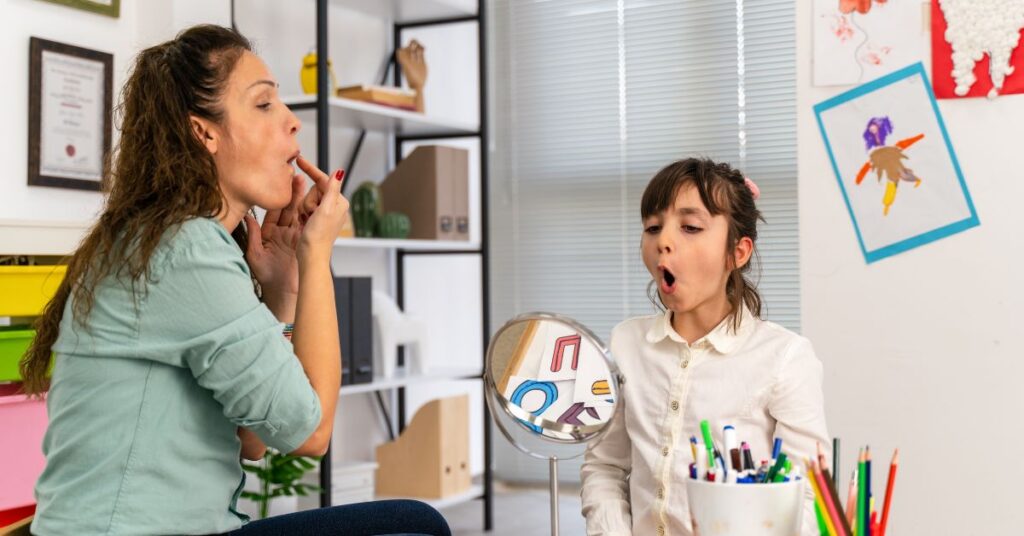Supporting neurodivergent children: tailored approaches for thriving at home and beyond

As clinicians working closely with neurodivergent children and their families, we know how much love, patience, and advocacy you pour into supporting your child.
Whether your child is autistic, has ADHD, or presents with other neurodivergent needs, it’s important to recognise that there’s no one-size-fits-all approach.
What truly supports neurodivergent children is tailored, compassionate, and informed care – at home, in school, and in the community.
In this post, I want to share three core ideas that have helped many families feel more confident and connected in their journey:
- Increasing predictability,
- Understanding fluctuating capacity, and
- Looking below the surface of behaviour.
Let’s explore what these look like in day-to-day life.
1. Increasing predictability: making the world more understandable
Many neurodivergent children experience the world as unpredictable and overwhelming.
The brain naturally feels safer when it can anticipate what’s coming next.
This sense of predictability supports emotional regulation, reduces anxiety, and builds confidence.
Practical strategies for increasing predictability include:
- Visual timetables: Use simple images or symbols to outline your child’s day. These help reduce uncertainty and transitions between tasks.
- Social stories: Create short, clear stories with pictures that prepare your child for new or challenging experiences (e.g., going to the dentist, a family holiday, or starting a new activity).
- Video self-modelling: This involves recording your child successfully completing a task or managing a routine, then watching it together. Seeing themselves succeed helps build familiarity and confidence.
- Consistent routines: While life doesn’t always allow perfect consistency, having a steady rhythm to meals, bedtime, and transitions gives your child anchor points in the day.
Remember, these tools aren’t about rigid control—they’re about empowering your child with the safety of knowing what’s coming next.
2. Recognising that capacity fluctuates: the spoons theory
Have you ever noticed that your child can manage something easily one day, and the next day, that same task seems impossible?
This isn’t inconsistency – it’s a reflection of how your child’s energy and emotional resources ebb and flow.
Spoons theory, originally developed to describe chronic illness, is a helpful metaphor here.
Imagine your child starts each day with a limited number of ‘spoons’ (units of energy and emotional capacity).
Tasks like getting dressed, listening in class, or managing social interactions all use up spoons.
Once they’re gone, your child may become overwhelmed, shut down, or act out – not because they won’t behave, but because they can’t in that moment.
What can you do?
- Build in recovery time and downtime into your child’s day.
- Pay attention to signs of ‘spoon depletion’ (e.g., irritability, zoning out, tears over small things).
- Adjust your expectations day-to-day. It’s okay to have a Plan B – or even a Plan C.
By honouring your child’s fluctuating capacity, you’re validating their lived experience and helping them learn to understand their own needs.

3. Looking below the surface: behaviour is communication
When a child is melting down, not complying, or lashing out, it’s easy to focus on the visible behaviour.
But as the collaborative problem solving approach reminds us, ‘Kids do well if they can’.
Think of behaviour like an iceberg: what you see above the waterline is just the tip.
Below the surface are lagging skills – things like emotion regulation, flexibility, frustration tolerance, or executive functioning.
Rather than asking, ‘What’s wrong with my child?’ we shift to, ‘What skills might my child be missing?’ and ‘What’s making this hard for them right now?’
Supportive responses might include:
- Emotion coaching: ‘You’re feeling really frustrated because you weren’t expecting that change. I get it’.
- Collaborative problem solving: ‘It seems like getting ready for school has been tough lately. Can we work together to figure out what’s making that tricky?’
- Skill-building: Offering small, achievable opportunities to practice the skill they’re missing – at a time when they’re calm and receptive.
When we look underneath behaviour with curiosity rather than judgement, we unlock the door to true growth and connection.
Final thoughts
Supporting a neurodivergent child means meeting them where they are – not where others expect them to be.
It means tailoring your approach to their unique needs, rhythms, and strengths.
And above all, it means offering the consistent message: You are safe, you are understood, and you don’t have to go through this alone.
If you’re navigating this path and would like support, we’re here to walk alongside you and your family.









